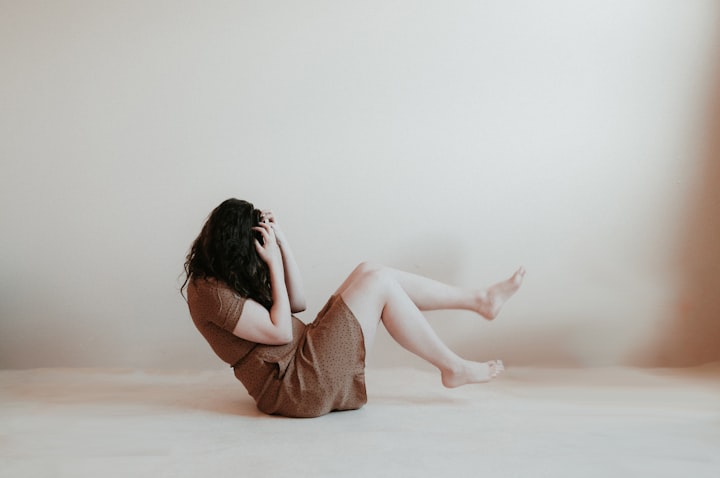
What is Social Anxiety or Social Phobia?
Many people get nervous or self-conscious on occasion, like when giving a speech or interviewing for a new job. But social anxiety disorder, or social phobia, is more than just shyness or occasional nerves. Social anxiety disorder involves intense fear of certain social situations—especially situations that are unfamiliar or in which you feel you’ll be watched or evaluated by others. These situations may be so frightening that you get anxious just thinking about them or go to great lengths to avoid them, disrupting your life in the process.
Underlying social anxiety disorder is the fear of being scrutinized, judged, or embarrassed in public. You may be afraid that people will think badly of you or that you won’t measure up in comparison to others. And even though you probably realize that your fears of being judged are at least somewhat irrational and overblown, you still can’t help feeling anxious. But no matter how painfully shy you may be and no matter how bad the butterflies, you can learn to be comfortable in social situations and reclaim your life.
What causes social anxiety?
Although it may feel like you’re the only one with this problem, social anxiety is actually quite common. Many people struggle with these fears. But the situations that trigger the symptoms of social anxiety disorder can be different.
Some people experience anxiety in most social situations. For others, anxiety is connected to specific social situations, such as speaking to strangers, mingling at parties, or performing in front of an audience.
16 Common social anxiety triggers include:
- Meeting new people
- Making small talk
- Public speaking
- Performing on stage
- Being the center of attention
- Being watched while doing something
- Being teased or criticized
- Talking with “important” people or authority figures
- Being called on in class
- Going on a date
- Speaking up in a meeting
- Using public restrooms
- Taking exams
- Eating or drinking in public
- Making phone calls
- Attending parties or other social gatherings
Signs and symptoms of social anxiety
Just because you occasionally get nervous in social situations doesn’t mean you have a social anxiety disorder or social phobia. Many people feel shy or self-conscious on occasion, yet it doesn’t get in the way of their everyday functioning. Social anxiety disorder, on the other hand, *does* interfere with your normal routine and causes tremendous distress.
For example, it’s perfectly normal to get the jitters before giving a speech. But if you have social anxiety, you might worry for weeks ahead of time, call in sick to get out of it or start shaking so bad during the speech that you can hardly speak.
3 Main Types of signs and symptoms
Emotional signs and symptoms of social anxiety:
- Excessive self-consciousness and anxiety in everyday social situations
- Intense worry for days, weeks, or even months before an upcoming social situation
- Extreme fear of being watched or judged by others, especially people you don’t know
- Fear that you’ll act in ways that will embarrass or humiliate yourself
- Fear that others will notice that you’re nervous
Physical signs and symptoms:
- Red face, or blushing
- Shortness of breath
- Upset stomach, nausea (i.e. butterflies)
- Trembling or shaking (including shaky voice)
- Racing heart or tightness in chest
- Sweating or hot flashes
- Feeling dizzy or faint
Behavioural signs and symptoms:
- Avoiding social situations to a degree that limits your activities or disrupts your life
- Staying quiet or hiding in the background in order to escape notice and embarrassment
- A need to always bring a buddy along with you wherever you go
- Drinking before social situations in order to soothe your nerves
Dealing with Social Anxiety
Things you can try to overcome social anxiety : Self-help can help reduce social anxiety and you might find it a useful first step before trying other treatments.
The following tips may help:
Try to understand more about your anxiety – by thinking about or writing down what goes through your mind and how you behave in certain social situations, it can help to keep a diary
try some relaxation techniques, such as breathing exercises for a stress break down challenging situations into smaller parts and work on feeling more relaxed with each part try to focus on what people are saying rather than just assuming the worst
Treatments for social anxiety
A number of treatments are available for social anxiety
The main options are:
Cognitive behavioural therapy (CBT) with a therapist, which is a therapy that helps you identify negative thought patterns and behaviours, and change them. This can be done with just you and a therapist, in a group or with your parents or carers.
Guided self-help, which involves working through a CBT-based workbook or online course with regular support from a therapist.
CBT is generally considered the best treatment, but other treatments may help if it does not work or you do not want to try it.
Some people need to try a combination of treatments.






Comments
There are no comments for this story
Be the first to respond and start the conversation.